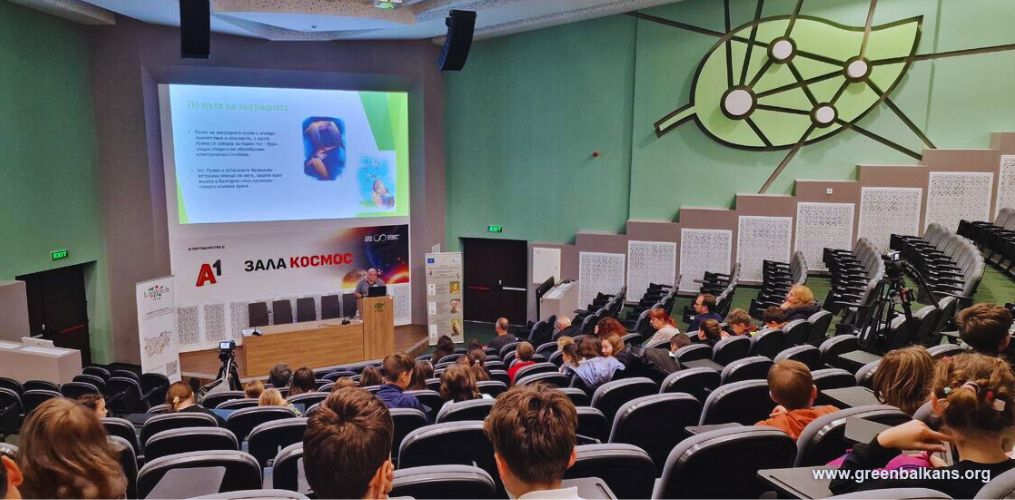
At the end of November, the team of the project Life for Lesser Kestrel – LIFE19 NAT/BG/001017 by Green Balkans, (https://lesserkestrellife.greenbalkans.org/en/) funded by the EU’s LIFE program, participated in the second edition of the Plovdiv Science Festival. The event provided an excellent opportunity to highlight the collaboration with LifeWatch ERIC.
Hosted by the Center for Plant Systems Biology and Biotechnology (CPSBB) in Plovdiv, the Festival was organised for the second consecutive year by the Beautiful Science Foundation, in partnership with the Ministry of Education and Science and the Municipality of Plovdiv. Over four days, the festival featured more than 100 presentations, games, exhibitions, demonstrations, experiments, workshops, and educational activities, attracting over 5,000 participants, including school groups, curious youth, visitors of all ages, and residents and guests of Plovdiv.
Green Balkans presented the exhibition “The Great Return – 2”, featuring scientific illustrations, paintings, graphics, digital images, and mixed media works created by members of the Society of Animalists, Florists, and Scientific Illustrators (DAFNI). Inspired by rare and protected species that are part of conservation and restoration programs in Bulgaria, the exhibition highlighted the connection between art, science, and wildlife conservation. The illustrations allowed thousands of children to enjoy learning about rare and protected species showcased in the exhibition.
During the presentation program, Dr. Gradimir Gradev from Green Balkans shared with young attendees the story of the adventures of the lesser kestrel Ruzhka, and the conservation efforts that have led to the recovery of this species in Bulgaria, once considered extinct in the region, with its colonies gradually growing.
Dr. Gradev also highlighted the organisation’s collaboration with our research infrastructure, represented locally by the Agricultural University – Plovdiv, as e-research facilities for studying biodiversity and ecosystem services can contribute greatly in helping address global environmental challenges.
Hopefully, many more collaborations like this will emerge in the future, supporting efforts to bring many other species back from the brink of extinction.